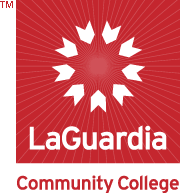Document Type
Assignment
Publication Date
7-2018
Abstract
This ENG 102 assignment was developed in the context of CTL sponsored Learning Matters Mini-grant awarded to the English Department. The primary purpose was to assist full-time and part-time faculty in the Department with revising ENG 102 course materials to align with the Inquiry and Problem Solving (IPS) Core Competency and Written Communication Ability. This goal was achieved through several workshops, a programmatic benchmark reading, and a two-phase departmental review process that prepared assignments to be submitted to the Learning Matters Assignment Library. The mini-grant has been invaluable in helping to bring both full-time and adjunct faculty into departmental conversations about composition course requirements and how they align with LaGuardia’s core competencies, the role of the competencies in the curriculum review process, and more generally the importance of the competencies and abilities in the college’s general education requirements.
ENG 102: Composition II is a required course for most LaGuardia students that builds and intensifies the training received in Composition I. Most students enrolled in ENG 102 are non-majors, and are upper-freshman or lower-sophomores, although occasionally students may take the course later in their career. In addition to continuing to develop critical reading, writing, and research skills, in ENG 102 students are introduced to the literary genres of fiction, poetry, and drama. Students also learn close reading techniques and are introduced to forms of literary analysis such as historical context. ENG 102 is a baseline course for the Inquiry and Problem Solving (IPS) Core Competency and Written Communication Ability.
One concept I repeatedly discuss ENG 102 is the notion that academic writing is a form of joining an existing conversation on a subject or issue. The following Critical Research Paper Assignment encourages students to continue and expand our class discussion on the effects of deindustrialization in the America’s Rust Belt in the 21st century. The primary literary text students analyze in this assignment is Lynn Nottage’s 2017 Pulitzer-Prize winner Broadway play Sweat. In order to provide students with a stronger historical and ethnographic context for their reading of Nottage’s play, students were also assigned to read several chapters of Chad Broughton’s book Boom, Bust, Exodus: The Rust Belt, the Maquilas, and a Tale of Two Cities (2015).
The Critical Research Paper is a scaffolded assignment that students worked on for 3-4 weeks of the semester. This included one week (about two weeks into the process) where students engaged in peer review workshops in which they meet in groups of 4-5 students with the instructor for 30 minutes to review and discuss the first drafts of their essays. The Critical Research Paper constituted 30% of students’ final grade in the course. This includes credit received for all scaffolded sections of the essay, as well as participation in peer review workshops.
LaGuardia’s Core Competencies and Communication Abilities
The Critical Research Paper meets several of the course’s instructional and performance objectives, including practicing writing as a process by completing multiple drafts and revisions. Engaging in close reading strategies and using historical context as a literary analysis methodology. As well as demonstrating research skills through the ability to gather, evaluate, synthesize, and cite primary and secondary sources. Furthermore, these performance objectives overlap with the dimensions of the Inquiry and Problem Solving (IPS) core competency rubric, as the assignment asks students to frame an issue through the thesis statement and argument they develop, to gather evidence to support their assertions, to analyze through their close reading of passages of literature, and finally to draw conclusions based on their analysis.
Creative Commons License

This work is licensed under a Creative Commons Attribution-Noncommercial 4.0 License


Comments
This resource is part of the Learning Matters Assignment Library.